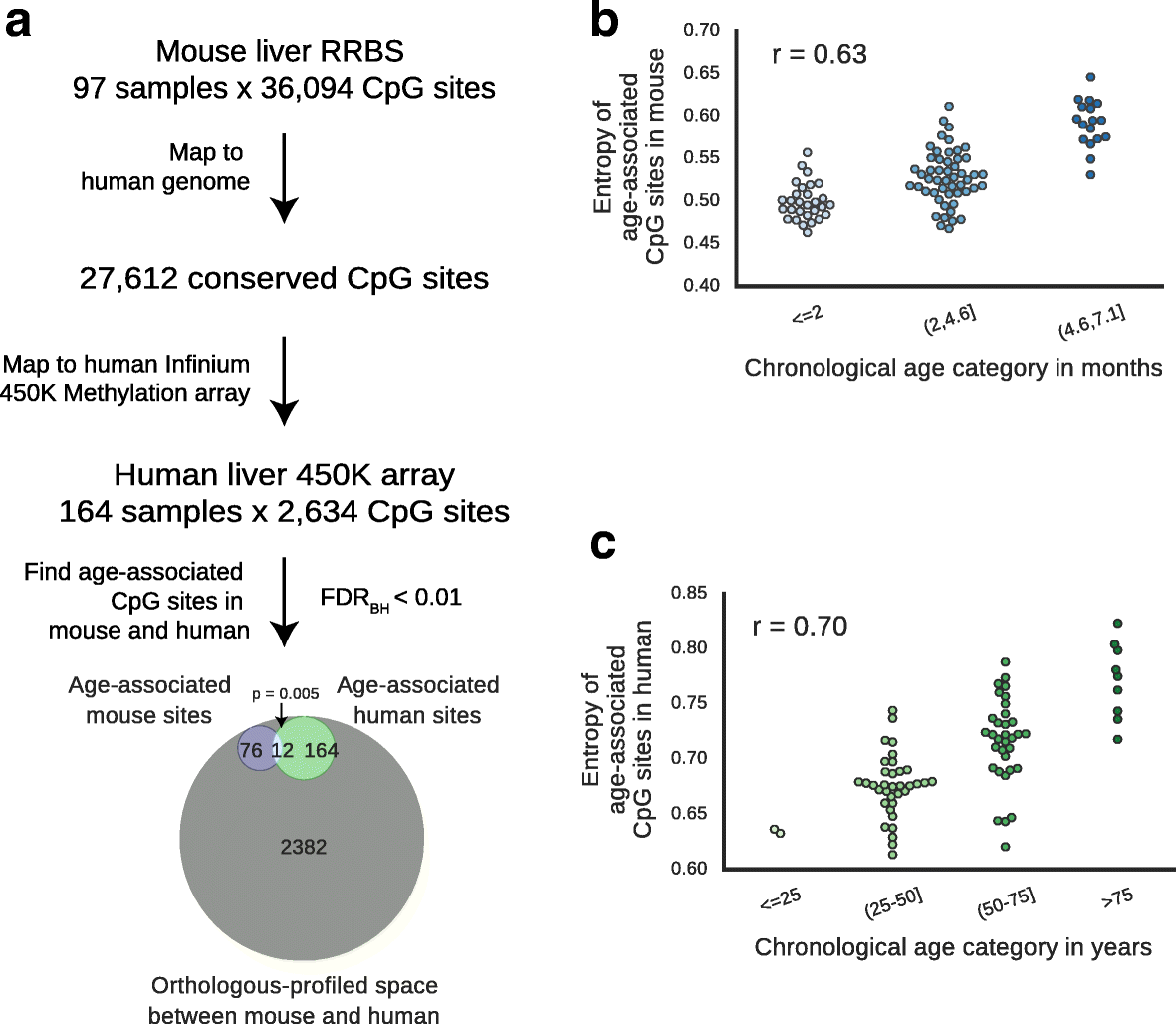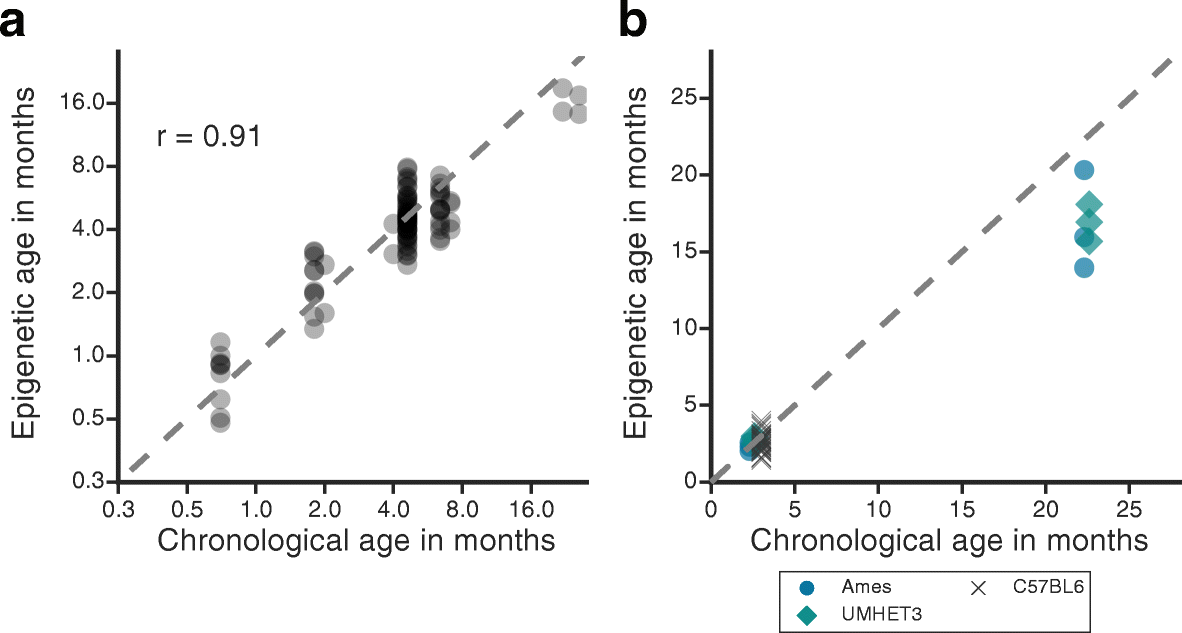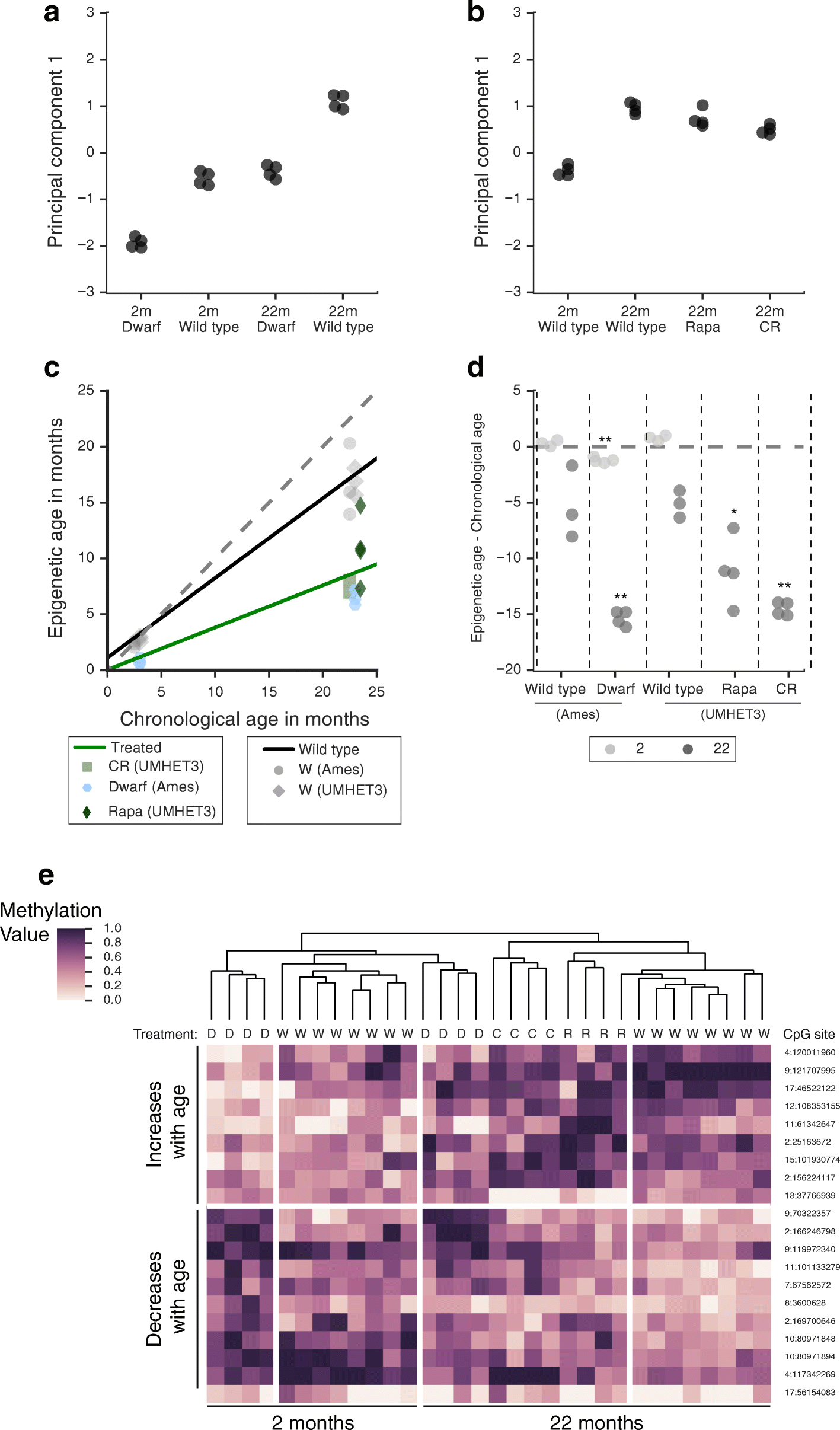Epigenetic aging signatures in mice livers are slowed by dwarfism, calorie restriction and rapamycin treatment
- PMID: 28351423
- PMCID: PMC5371228
- DOI: 10.1186/s13059-017-1186-2
Epigenetic aging signatures in mice livers are slowed by dwarfism, calorie restriction and rapamycin treatment
Abstract
Background: Global but predictable changes impact the DNA methylome as we age, acting as a type of molecular clock. This clock can be hastened by conditions that decrease lifespan, raising the question of whether it can also be slowed, for example, by conditions that increase lifespan. Mice are particularly appealing organisms for studies of mammalian aging; however, epigenetic clocks have thus far been formulated only in humans.
Results: We first examined whether mice and humans experience similar patterns of change in the methylome with age. We found moderate conservation of CpG sites for which methylation is altered with age, with both species showing an increase in methylome disorder during aging. Based on this analysis, we formulated an epigenetic-aging model in mice using the liver methylomes of 107 mice from 0.2 to 26.0 months old. To examine whether epigenetic aging signatures are slowed by longevity-promoting interventions, we analyzed 28 additional methylomes from mice subjected to lifespan-extending conditions, including Prop1df/df dwarfism, calorie restriction or dietary rapamycin. We found that mice treated with these lifespan-extending interventions were significantly younger in epigenetic age than their untreated, wild-type age-matched controls.
Conclusions: This study shows that lifespan-extending conditions can slow molecular changes associated with an epigenetic clock in mice livers.
Keywords: Aging; DNA methylation; Epigenetic aging; Epigenomics.
Figures



References
Publication types
MeSH terms
Substances
Grants and funding
LinkOut - more resources
Full Text Sources
Other Literature Sources
Medical
Miscellaneous

